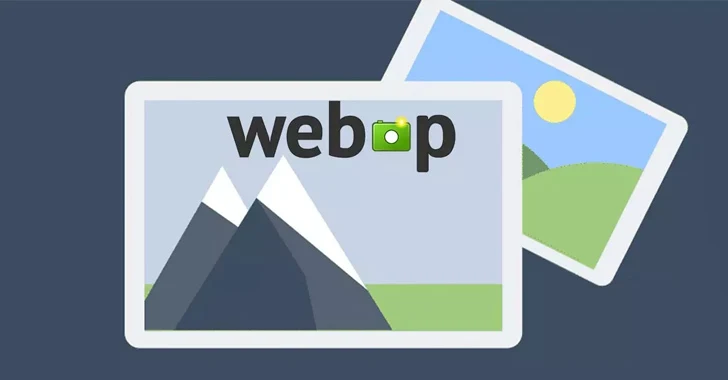Google has assigned a brand new CVE identifier for a essential safety flaw within the libwebp picture library for rendering pictures within the WebP format that has come beneath energetic exploitation within the wild.
Tracked as CVE-2023-5129the problem has been given the utmost severity rating of 10.0 on the CVSS ranking system. It has been described as a problem rooted within the Huffman coding algorithm –
With a specifically crafted WebP lossless file, libwebp might write knowledge out of bounds to the heap. The ReadHuffmanCodes() operate allocates the HuffmanCode buffer with a dimension that comes from an array of precomputed sizes: kTableSize. The color_cache_bits worth defines which dimension to make use of. The kTableSize array solely takes into consideration sizes for 8-bit first-level desk lookups however not second-level desk lookups. libwebp permits codes which are as much as 15-bit (MAX_ALLOWED_CODE_LENGTH). When BuildHuffmanTable() makes an attempt to fill the second-level tables it could write knowledge out-of-bounds. The OOB write to the undersized array occurs in ReplicateValue.
The event comes after Apple, Googleand Mozilla launched fixes to comprise a bug – tracked individually as CVE-2023-41064 and CVE-2023-4863 – that would trigger arbitrary code execution when processing a specifically crafted picture. Each flaws are suspected to address the same underlying problem within the library.

In accordance with the Citizen Lab, CVE-2023-41064 is alleged to have been chained with 2023-41061 as a part of a zero-click iMessage exploit chain named BLASTPASS to deploy a mercenary adware often known as Pegasus. Extra technical particulars are at the moment unknown.
However the resolution to “wrongly scope” CVE-2023-4863 as a vulnerability in Google Chrome belied the truth that it additionally nearly impacts each different utility that depends on the libwebp library to course of WebP pictures, indicating it had a broader influence than beforehand thought.
An evaluation from Rezillion final week revealed a laundry listing of broadly used functions, code libraries, frameworks, and working programs which are susceptible to CVE-2023-4863.
“This package stands out for its efficiency, outperforming JPEG and PNG in terms of size and speed,” the corporate said. “Consequently, a multitude of software, applications, and packages have adopted this library, or even adopted packages that libwebp is their dependency.”
“The sheer prevalence of libwebp extends the attack surface significantly, raising serious concerns for both users and organizations.”
The disclosure arrives as Google expanded fixes for CVE-2023-4863 to incorporate the Secure channel for ChromeOS and ChromeOS Flex with the discharge of model 15572.50.0 (browser model 117.0.5938.115).
Fight AI with AI — Battling Cyber Threats with Next-Gen AI Tools
Able to deal with new AI-driven cybersecurity challenges? Be part of our insightful webinar with Zscaler to handle the rising menace of generative AI in cybersecurity.
It additionally follows new particulars revealed by Google Undertaking Zero concerning the in-the-wild exploitation of CVE-2023-0266 and CVE-2023-26083 in December 2022 by commercial spyware vendors to focus on Android gadgets from Samsung within the U.A.E. and procure kernel arbitrary learn/write entry.
The issues are believed to have been put to make use of alongside three different flaws – CVE-2022-4262, CVE-2022-3038, CVE-2022-22706 – by a buyer or companion of a Spanish adware firm often known as Variston IT.
“It is also particularly noteworthy that this attacker created an exploit chain using multiple bugs from kernel GPU drivers,” safety researcher Seth Jenkins said. “These third-party Android drivers have varying degrees of code quality and regularity of maintenance, and this represents a notable opportunity for attackers.”
Author: information@thehackernews.com (The Hacker Information)
Date: 2023-09-27 01:23:00



